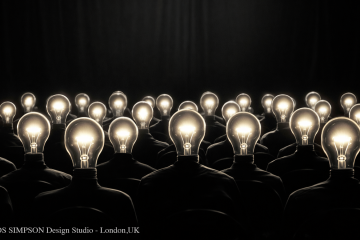Thank you for reading this post; don't forget to subscribe!
The Ethical Imperative in Artificial Intelligence
In an age of algorithmic governance, the ethics of AI must no longer be reactive; it must be foundational.
We’re no longer just building smart tools; we’re shaping digital infrastructures that increasingly influence how societies function, how rights are protected, and how power is distributed.
From Innovation to Accountability
From algorithmic bias in hiring practices to the existential threat posed by autonomous weapons systems, AI presents a spectrum of ethical challenges that directly intersect with:
Human rights
Democratic integrity
Global Security
These issues are no longer theoretical; they are happening now.
What We Must Enshrine in AI Governance
To ensure AI aligns with the public good, we must embed these principles at every stage of development and deployment:
– Privacy and Security as inviolable digital rights
– Transparency and Explainability as prerequisites for trust
– Accountability and Responsibility in every phase of AI creation
– Human Oversight as a non-negotiable safeguard
– Beneficence: AI must actively do good, not just avoid harm
These are not optional. They are ethical infrastructure.
Algorithmic Systems and Democratic Risk
As governments, institutions and political systems increasingly rely on AI-driven infrastructure, the absence of ethical rigour risks entrenching inequality rather than dismantling it.
Without intervention, algorithms will mirror and amplify historical bias, commercial power, and geopolitical agendas.
Core Question: Who Decides the Future?
The question is not whether we can continue to advance artificial intelligence.
The question is:
Are we ethically equipped to govern what we create?
Do we want this to be a democracy or a digital oligarchy?
Visual Reflection: Media Control
A conceptual artwork by Carlos Simpson showing hands bound by a USB cable and a computer mouse labelled “MEDIA CONTROL.”
The image poses a chilling question: Are we free users of technology, or are we being shaped and surveilled by it?
Further Reading and Critical Resources
For those committed to understanding and acting on AI ethics, these are essential resources:
1. “The Ethics of Artificial Intelligence”- Nick Nick Bostrom & Eliezer Yudkowsky
2. “Weapons of Math Destruction” – Cathy O’Neil
3. “Ethics Guidelines for Trustworthy AI” – European Commission
4. The Montreal Declaration for Responsible AI
5. AI Now Institute ReportsLink: Official homepage and annual report archive on AI Now Institute site
Past annual reports (e.g., 2017, 2023) are accessible via their publication archive and academic citations






